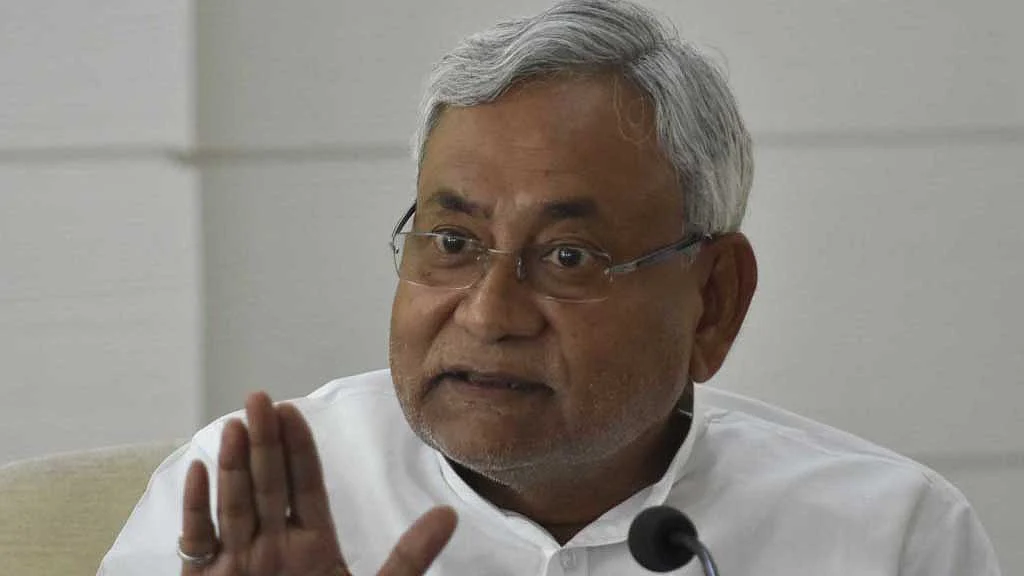Ramachandra Guha’s endorsement of Nitish Kumar misplaced
The eminent historian’s suggestion on TV that Nitish Kumar should lead the Congress shows he understands neither politics nor Bihar’s Mr Inconsistent

Ramachandra Guha is not the first person to gush that Nitish Kumar would make a good Prime Minister. Others too have indulged in such a ‘fantasy’. Senior BJP leaders and his former deputy chief minister, Sushil Kumar Modi, also had found prime ministerial material in Bihar chief minister Nitish Kumar––of course when he was still with the NDA.
Nitish Kumar, however, disappointed his admirers then and sacked all the saffron party ministers, including Sushil Modi and split the NDA, which helped him become the most powerful chief minister of the state.
Guha, the acclaimed historian, seems to have made up his mind about Nitish Kumar on the basis of media reports. That is why he said in an interview to NDTV, “Nitish Kumar is a leader without a party. Congress is a party without a leader. If a friendly takeover of the Congress party is organised by Nitish Kumar, I think the Opposition has a chance. That’s not going to happen, but as a democrat, that would be my fantasy.”
Anyway, Mr Guha should know more about him before indulging in any fantasy. His party, JD(U), contested the Lok Sabha election in Bihar in 2014 but won only two out of 40 seats––one of them in the CM’s home turf of Nalanda. Even the party of much maligned and convicted Lalu Prasad Yadav won four seats.
Janata Dal (United) leaders attributed it to the Narendra Modi wave and argued that the Lok Sabha verdict was not a referendum on the Nitish government. But if chief ministers like Naveen Patnaik and Mamata Banerjee––not to speak of Jayalalithaa––could withstand the Modi onslaught, why could not the most performing chief minister of Bihar?
Mind it, Samata Party, the earlier version of Janata Dal (United), was the first party to give secular legitimacy to BJP in the post-Babri Masjid demolition years. It was only in 1998 that other secular parties joined hands and NDA came into existence. Before 1996 the BJP had only two unabashedly religion based parties Shrimoni Akali Dal and Shiv Sena as its allies.
However, political compulsion and pressure from Samata Party and other secular constituents of NDA compelled the saffron party then to drop contentious issues like Ram Mandir, Article 370 and Uniform Civil Code.
But, even earlier, in 1995, Samata Party contested the Assembly election in alliance with the CPI ML only to win six seats in the House of 324 then. So, the alliance with BJP helped Nitish emerge as a political force. He became the Union minister and the chief minister.
However, the moment the BJP and JD (U) parted ways on June 16, 2013, it was back to square one. But the poor performance of JD(U) raises several questions: If Nitish really did so much for Bihar’s development, why did his party fail to get the support of even the educated middle-class––not to speak of uneducated masses? Why did Nitish fail to translate his performance into votes?
Can he blame only caste? Or was there something really wrong with his style of politics, which compelled him to fall back to an alliance with the same scam-tainted ‘Bade Bhai’?
If “Nitish is a leader without a party”, as Guha puts it, why is it so? Why did Nitish Kumar not let JD (U) grow?
Undoubtedly many roads were built during his tenure ––but many of them were under the centrally-sponsored Pradhan Mantri Gram Sadak Yojana and National Highways too. His government distributed cycles to students. Yet, no one can deny the systematic destruction of education in Bihar under him and the introduction of a new culture of corruption in government offices and urban and rural local bodies. Things have indeed turned from bad to worse.
What about the uterus scam and massive rice mill scam, also known as paddy scam, involving several hundred crores? When his successor Jitan Ram Manjhi, whom he handed over charge as chief minister after taking moral responsibility for the electoral debacle of the party in May 2014, started raising the issue of rampant corruption in the Nitish era, he was sent packing. One of the JD (U) MLAs, Anant Singh, a notorious strongman, went to the extent of publicly calling Manjhi a mad chief minister.
The historian’s fantasy has little legs to stand on.
The views expressed in the above opinion piece are the author’s own.
Follow us on: Facebook, Twitter, Google News, Instagram
Join our official telegram channel (@nationalherald) and stay updated with the latest headlines
- Lok Sabha
- Congress
- Nitish Kumar
- Bihar
- NDA
- Mamata Banerjee
- Lalu Prasad Yadav
- JD(U)
- Shiv Sena
- Uniform Civil Code
- Naveen Patnaik
- J Jayalalithaa
- NDTV
- Pradhan Mantri Gram Sadak Yojana
- Article 370
- Ramchandra Guha
- the BJP
- Samata Party
- Shrimoni Akali Dal